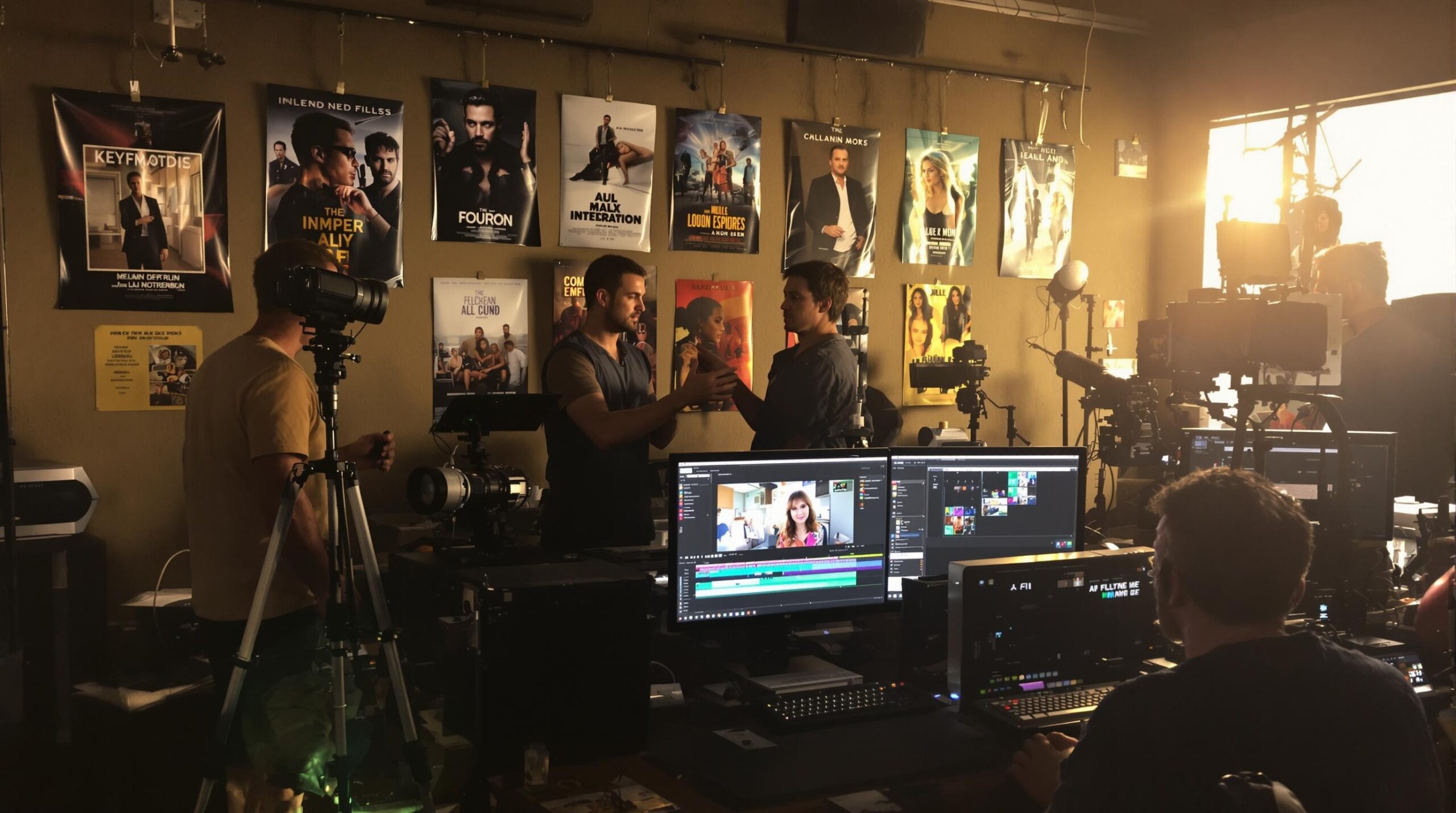Artificial intelligence (AI) is rapidly transforming industries worldwide, and the independent film sector is no exception. AI offers new tools and opportunities as filmmakers seek to create compelling stories on limited budgets. This technology aids production and distribution, reshaping how independent films reach audiences.
Revolution in Film Production
AI significantly enhances the film production process. One key area is scriptwriting. Tools using natural language processing (NLP) assist screenwriters in various ways. They can suggest plot ideas, analyze story structures, and refine dialogue for better impact. These tools improve efficiency and creativity, enabling filmmakers to focus on crafting unique narratives.
Casting is another aspect transformed by AI. Machine learning algorithms analyze actors’ profiles and previous performances. They efficiently match roles with suitable talents. AI technology saves time and resources, allowing directors to concentrate on vision and direction. Additionally, AI-generated deepfake technology has sparked debates. While controversial, it offers new creative possibilities for storytelling.
AI-based software supports set and costume design. It simulates how costume colors and set lighting affect scenes in films. Directors and producers can visualize their ideas before actual production begins. This capability reduces errors and optimizes pre-production planning. As AI technology advances, it becomes a valuable ally in managing production logistics effectively.
Post-Production Enhancements
AI also plays a significant role in post-production. Editing is a crucial phase in filmmaking. AI tools provide editors with automated options for cutting, assembling, and fine-tuning scenes. This automation speeds up the process and allows creators to focus on a film’s artistic elements. AI’s impact on color grading is noteworthy, too. Algorithms ensure scene color consistency, enhancing visual storytelling.
Sound design benefits substantially from AI technology. Audio editing applications utilize machine learning to refine sound quality and locate errors. They can even generate soundscapes that match film scenes effectively. This process relieves audio engineers from repetitive tasks, empowering them to concentrate on more creative endeavors.
AI also enhances visual effects (VFX) in independent films. Independent filmmakers, often constrained by limited resources, leverage AI tools for CGI and special effects. These tools democratize VFX production, which was once exclusive to major studios. AI significantly reduces costs, allowing smaller studios to achieve blockbuster-quality visuals.
Distribution Challenges and Opportunities
The disruption extends beyond production into film distribution. AI algorithms play a pivotal role in marketing independent films. They help identify target audiences by analyzing viewing patterns and preferences. This ability enables filmmakers to tailor promotional strategies that resonate with potential viewers, increasing a project’s visibility.
Streaming platforms, heavily reliant on AI, also influence distribution processes. Services like Netflix and Amazon Prime Video use algorithms to recommend content to users based on viewing habits. Independent filmmakers can reach global audiences through these platforms, bypassing traditional distribution channels. This democratization of film access expands the reach of niche productions.
Social media, powered by AI analytics, is essential for filmmakers. It gathers insights into audience engagement and sentiment analysis. Filmmakers use this data to refine marketing campaigns and connect directly with their audience. The relationships built on these platforms create a loyal fanbase that promotes independent work.
However, AI-based algorithms present specific challenges. The focus on popularity and view counts may overshadow artistic merit. Films with unique themes might struggle in an algorithm-driven system. Independent filmmakers must balance creative vision with market expectations, a challenging task in a competitive landscape.
AI’s Influence on the Viewer Experience
AI impacts the industry backend and alters the viewer experience. Personalized recommendations ensure audiences discover films they can relate to and appreciate. AI-driven search engines enhance discoverability, helping viewers find content tailored to their tastes.
Interactive storytelling represents another frontier unlocked by AI technology. Filmmakers can create branching narratives that adapt to audience choices. This engagement form immerses viewers in stories, offering a unique interactivity previously reserved for video games. The convergence of AI and film opens new avenues for audience interaction.
AI tools further enhance accessibility. AI-driven subtitle generation and language translation break language barriers, making films more accessible to international audiences. Automated video description algorithms also assist visually impaired viewers. These advancements empower diverse audiences to participate in film culture, enriching the industry.
Ethical Considerations and Future Prospects
AI’s growing role comes with ethical considerations. Privacy issues arise when algorithms collect and analyze user data. Maintaining a balance between personalization and privacy is key to fostering audience trust. Furthermore, the reliance on AI raises questions about creative authenticity. Filmmakers must ensure AI serves as a tool for innovation, not a replacement for creativity.
The future holds exciting prospects as AI technology evolves. Filmmakers and industry professionals will continue experimenting with AI, discovering its full potential. Collaborative efforts between technologists and artists will likely produce groundbreaking film production and distribution innovations.
AI’s potential to generate harmony between artistic vision and audience needs remains promising. Independent filmmakers will find AI a formidable ally in overcoming challenges and seizing opportunities. This partnership may redefine being an independent filmmaker, paving the way for fresh perspectives and powerful storytelling.
Conclusion
AI’s impact on independent film production and distribution is profound and multifaceted. From streamlining production processes to enhancing post-production and distribution, AI technology introduces efficiencies and creative possibilities. While challenges exist, the benefits AI offers to independent filmmakers are undeniable.
The film industry continues to adapt to these technological trends. Independent filmmakers harness AI, embracing its potential while staying true to their creative vision. The future will likely witness even more innovation as AI technology matures, making independent cinema a more dynamic and inclusive space.


